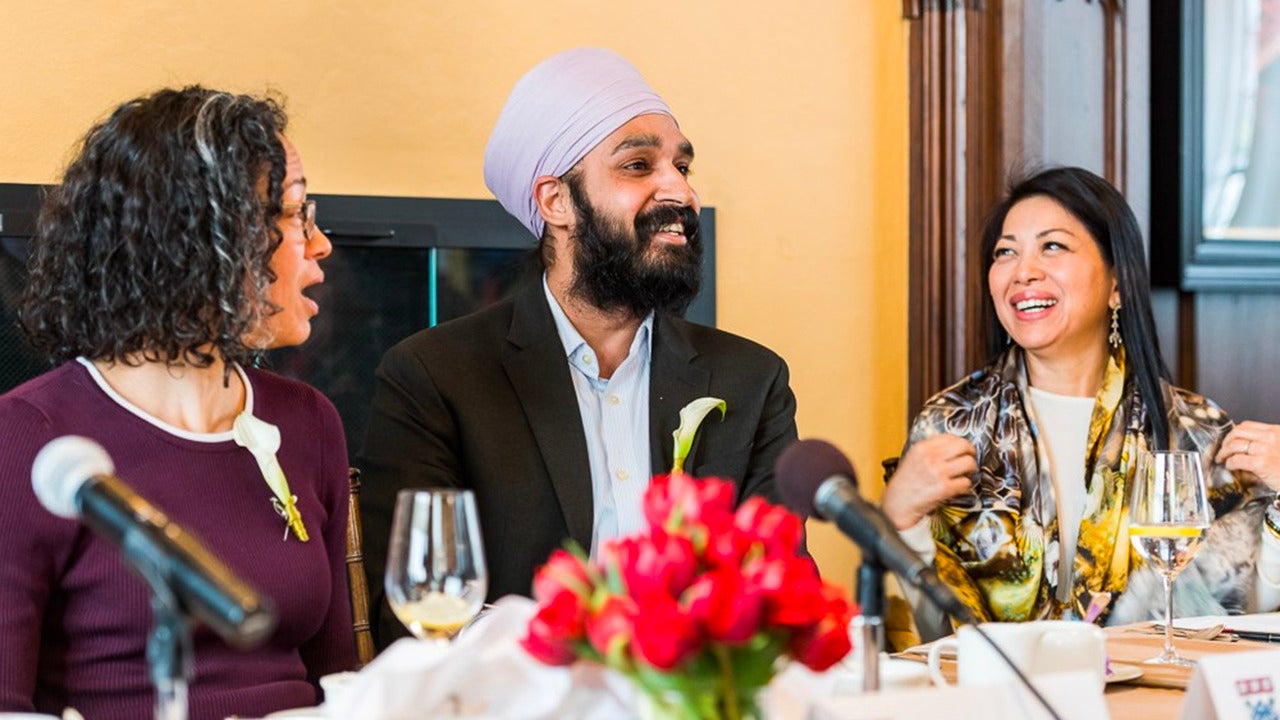Much of the media coverage of last year’s siege on the US Capitol focused on the political beliefs of the rioters. Cameras zoomed in on their cherry red MAGA hats, oversized Trump banners, and handwritten Qanon posters. What went largely ignored was the role of religion. Yet images from that day tell a different story—one that is at risk of being whitewashed from history.
On January 6, significant religious imagery, symbolism, and sounds accompanied the mob that stormed the Capitol building. Rioters waved flags glorifying Jesus and Trump, shouted prayers and sung hymns through megaphones, and wore “Armor of God” patches on their tactical gear. During a recent event, the Aspen Institute’s Religion & Society Program gathered religious scholars to discuss how the rise of Christian nationalism drove the insurrection.
Religious rhetoric encouraged and justified the attack. “It gave permission to rioters and created a psychological safety net to make their cause seem righteous,” said Peter Manseau, the Lilly Endowment Curator of American Religious History at the Smithsonian who moderated the panel.
According to Maneasu, the religious context was not accidental, and it points to an increase in Christian nationalism that threatens the country’s pursuit of equality and true democracy.
Christian nationalism protects––and promotes––the Manifest Destiny belief that Anglo-Saxon Protestants are God’s sacred people and the only ones with citizen rights in the United States. “It serves as a theological and ideological legitimation for a white supremacist narrative in this country,” said Dean Kelly Brown Douglas, who holds leadership positions at Union Theological Seminary, Washington National Cathedral, and Trinity Church Wall Street.
Because of its white suprematist underpinnings, Christian nationalism emerges during points in history when patriarchal power is threatened. While many believe that economic anxiety has fueled Trump supporters, the panel argued that it’s cultural anxiety, exacerbated by the election of Barack Obama as the nation’s first Black president, that is responsible for a surge in Christian nationalism.
“A Black man in the White House was symbolic of a shift that ignited a part of the country that refuses to create new possibilities of what a world could be like if we let everyone share power and didn’t build systems on domination and control,” said Rabbi Danya Ruttenberg, scholar in residence at the National Council of Jewish Women.
Christian nationalism is particularly dangerous because it is tolerated. Capitol rioters were not confronted by law enforcement with the same force as protesters of color would have been, and rioters who were arrested have faced minimal criminal consequences. “It’s good to be a white terrorist,” said Wajahat Ali, a columnist for The Daily Beast. “There are even double standards for white rage and white anxiety in this country.”
While the panel said that immediate calls for unity after the Capital riot were disingenuous, it agreed that the US is at an inflection point in history––and it’s time for religious leaders and people with privilege to speak out about what it means to be Christian and American. “We must model the America we want this country to become,” Ali said. “We can’t give in to apathy and cynicism.”
But perhaps even more importantly, America must confront the reality of its history—who we are and who we were founded to be. Dr. Douglas described white supremacy and Christian nationalism as a weed. “If we don’t pull it up from the root, it will continue to pop up and proliferate.”


